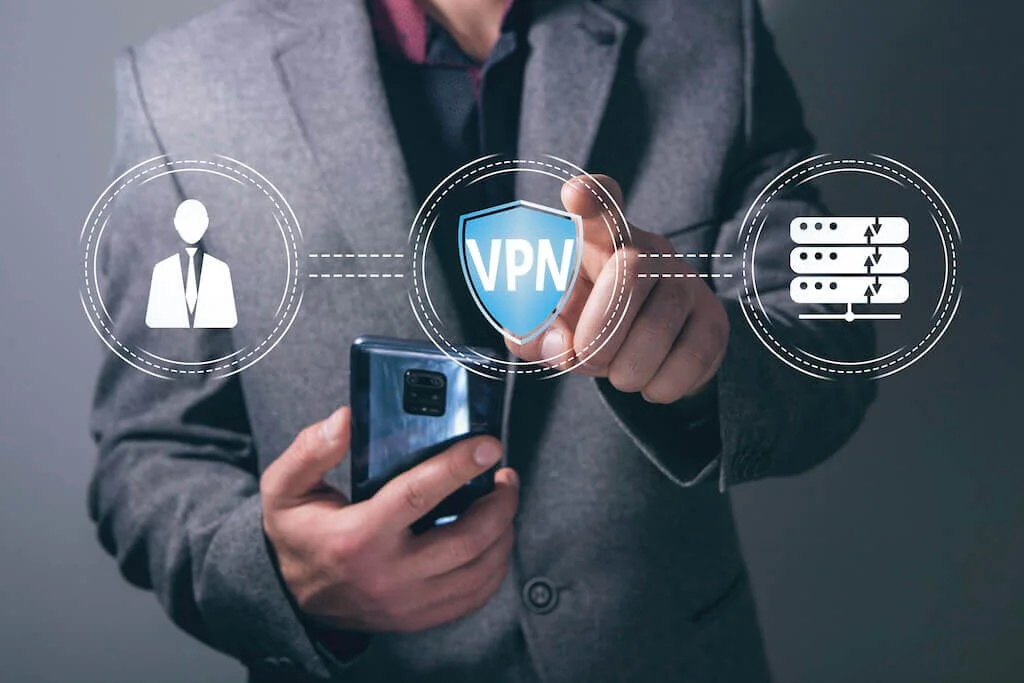
Yes, we work! … Restriction of freedom on the Internet, when access to certain resources is blocked, has contributed significantly to the popularity of VPNs. VPN (Virtual Private Network) is a technology that spoofs your location on the Internet and helps to preserve confidentiality.
Enhance Video Calls with VPN Technology
Summarize with
Unit list
Yes, it’s technically possible… but most VPNs won’t let you do it. That’s because they’re not set up to handle the type of data that makes WebRTC work. They often block it to keep their systems running smoothly. We offer our downloadable software to avoid these restrictions because it works over TCP protocol through standard port 443.
So, how VPN works?
When you go online on the Internet, you certainly use the services of an Internet connection provider. This provider has got access to all information about your actions, e.g., websites visited, files downloaded, etc. When you enable VPN, the specialized service establishes an encrypted connection over your main Internet link. All of your online sessions will still go through your provider, but it will no longer be able to track you. Your real IP address will be hidden.
VPN helps to preserve your confidentiality, as the provider is no longer able to track that namely you visited some certain website or downloaded any files. Moreover, with the help of VPN it is possible to spoof your location. As an example, you can go online with a German IP address, while still enjoying the sun on a sandy beach in Thailand.
VPN and video conferencing
Some attendees keep asking us if the video conferencing is going to work fine with the VPN enabled.
In most cases, the answer is “Yes.” Yet, we recommend using paid VPN services, e.g., NordVPN, Surfshack and ExpressVPN. They ensure good data transmission speed and work adequately with streaming services, which webinar platform services are.
Free VPN services can slow down your Internet experience, especially when it comes to holding or attending video conferencing. Moreover, if your Internet connection speed is slow, it would be better not to use any VPN in that case.
VPN built-in Opera
The Opera web browser has a built-in VPN service that blocks WebRTC, video, and audio transmission technology. Many video conferencing platforms use WebRTC. If this technology is blocked on your side, you will not be able to use the videoconferencing fully. To enable WebRTC operation in conjunction with VPN, you could go into the web browser settings and, in the Privacy & Security tab, activate the option to use any suitable network interfaces. Read more in our article “How to enable WebRTC in the browser“.
Summary
A VPN helps encrypt your connection and keep your privacy safe online. Using a paid service will not change how your internet works, even when you make video calls. If others cannot see or hear you, try turning off your VPN for a moment to check the connection quality. This can help you have a smoother experience with VPN and video conferencing.
FAQ
Yes, it is technically possible to run webinars or video conferences while using a VPN. However, many VPN services are not optimized to support WebRTC traffic, which video-conferencing systems often rely on.
A VPN encrypts your connection and hides your real IP address but can slow down your bandwidth and increase latency. That is why using a paid, high-quality VPN is recommended to reduce negative effects.
Yes, free VPNs may block or limit WebRTC, video, or audio streaming features because they are not configured to handle that kind of data, which will prevent full video conferencing functionality.
It does, because Opera’s built-in VPN blocks WebRTC by default. To make video conferencing work, you must change the browser’s privacy settings to allow WebRTC over suitable network interfaces.
If your video or audio fails when VPN is active, disable the VPN and retry the conference. Most issues with visibility or sound during a call are resolved by turning off the VPN.
An expert behind the simplified online meeting and webinar software platform, MyOwnConference. In today’s flexible work environment, Dan offers invaluable life hacks, in-depth reviews, and savvy tips for organizing, promoting, and excelling in virtual conferences and webinars.











